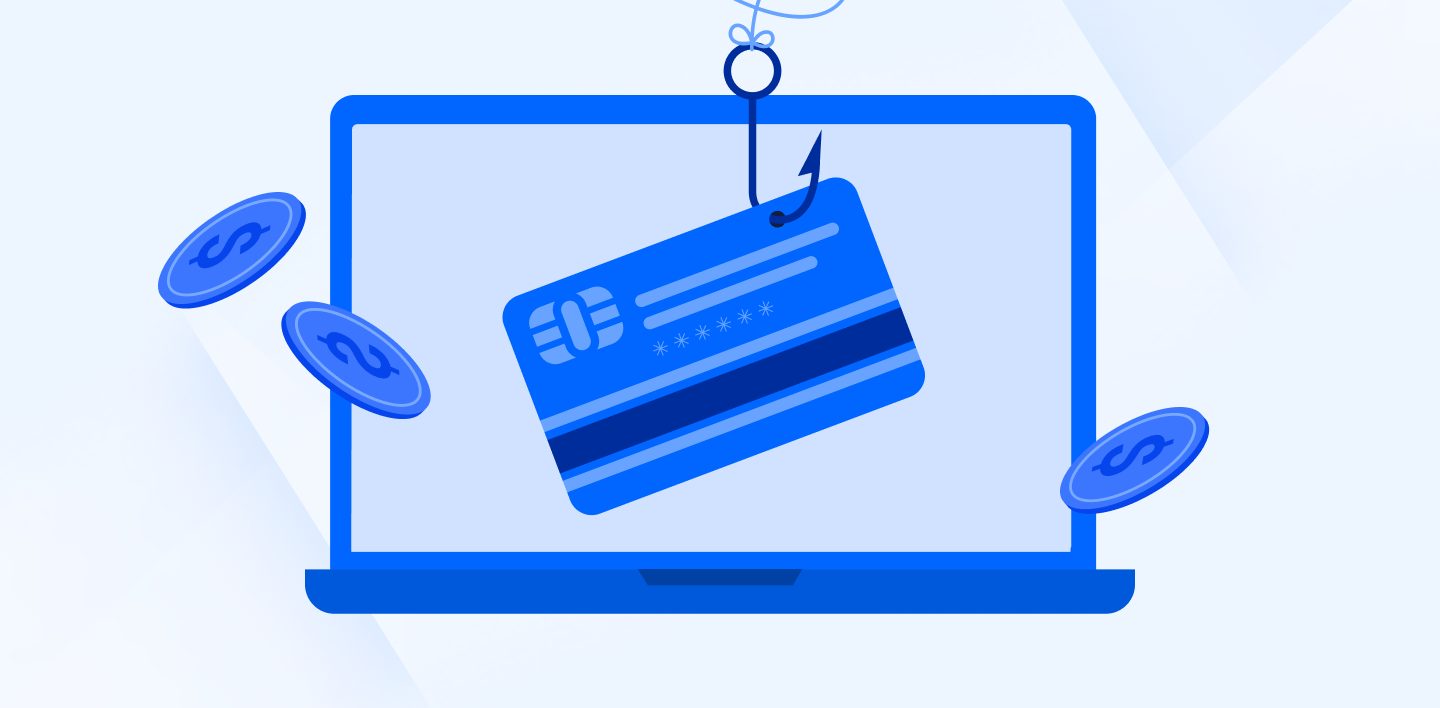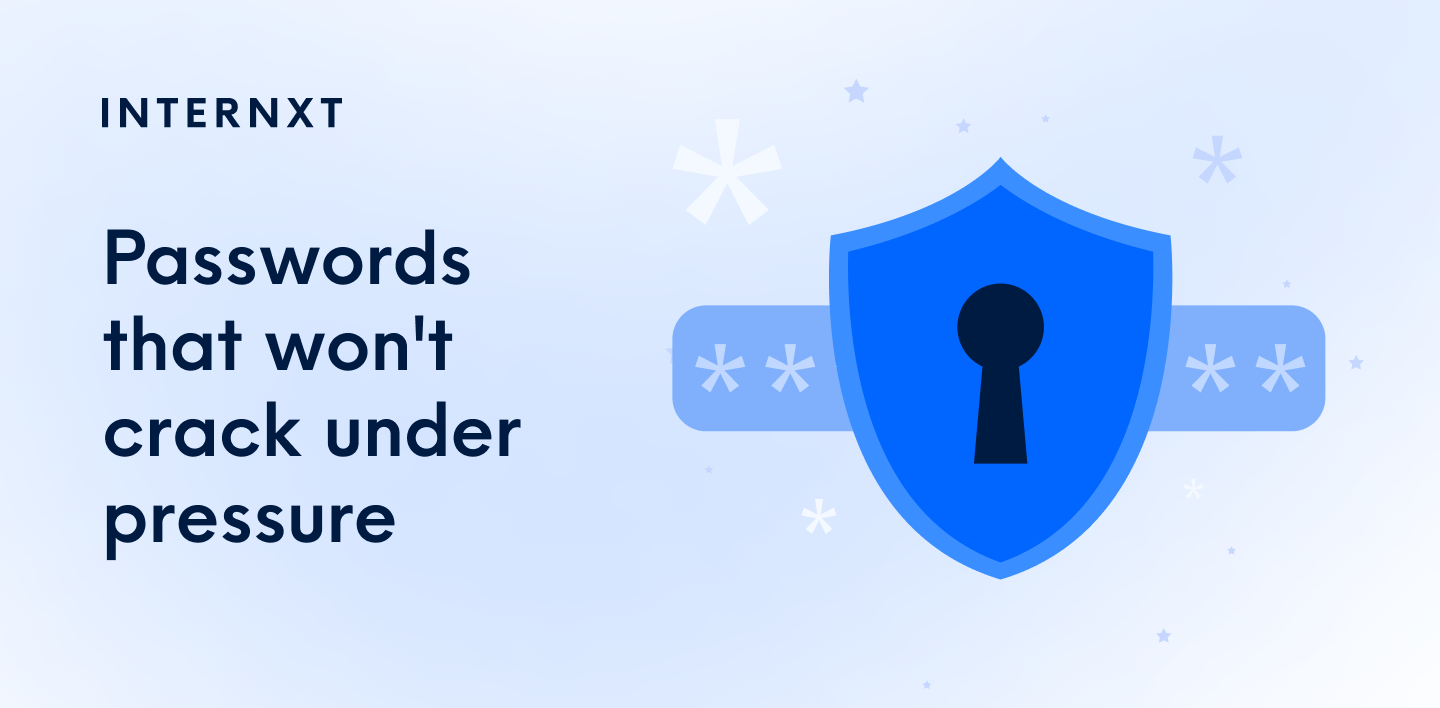Common Types of Financial Frauds and How to Protect Your Money Online

In today's interconnected world, where digital transactions have become the norm, it is vital to be aware of the ever-present threat of financial fraud and scams and take proactive measures to protect your hard-earned money.
What Is Financial Fraud?
Financial fraud is one of the many types of cybercrimes (phishing emails, identity theft, online shopping scams, or investment fraud). Fraudsters are constantly devising new ways to exploit unsuspecting individuals.
However, understanding common financial frauds and implementing adequate safeguards can significantly reduce the risk of falling victim to these schemes.
However, understanding common financial frauds and implementing adequate safeguards can significantly reduce the risk of falling victim to these schemes.
This comprehensive guide aims to shed light on ten of the most prevalent financial frauds and equip you with valuable knowledge to safeguard your finances in the online realm.
By staying informed about the tactics employed by fraudsters or hackers, recognizing warning signs, and implementing preventive measures, you can fortify your defenses and confidently navigate the online landscape.
Common Types of Online Financial Fraud
Your financial well-being is at stake, and arming yourself with knowledge is the first step towards securing your money in the digital age. Let's explore the world of financial fraud and discover how to shield ourselves from its deceptive grasp.
1. Phishing Scams
Phishing scams, considered one of the most widespread financial frauds, continue to pose a significant threat in the digital age.
These deceptive tactics are designed to trick unsuspecting individuals into divulging their confidential information by masquerading as reputable entities, including passwords, credit card details, and social security numbers.
Be cautious of suspicious emails, text messages, or websites requesting personal information. Cybercriminals often employ sophisticated techniques to make their communications appear legitimate, but there are ways to identify potential red flags.
Take the time to verify the authenticity of the source by carefully examining email addresses, domain names, and contact information. If something seems off or unfamiliar, it's best to be cautious and refrain from providing sensitive information.
Regularly update and strengthen your passwords, enable different authentication methods whenever possible, and educate yourself about the latest phishing techniques.
By practicing these precautions and being skeptical of unsolicited requests for personal information, you can significantly reduce the risk of falling victim to phishing scams and protect your valuable data in the ever-evolving digital landscape.
2. Identity Theft
Identity theft is a severe cybercrime in which perpetrators steal personal information to carry out fraudulent activities, often resulting in substantial financial loss and severe damage to an individual's credit and reputation.
To safeguard yourself against identity theft, it is essential to take proactive measures. Use strong, unique passwords to secure your social media privacy and other online accounts, and avoid sharing them with anyone.
Regularly monitor your financial accounts and credit reports to promptly detect suspicious or unauthorized activity. Be cautious when providing personal information online or responding to unsolicited requests, especially on unfamiliar websites.
Consider employing the services of identity theft protection providers, who can help detect and mitigate potential risks by monitoring your personal information and alerting you to any suspicious activity.
By staying vigilant and proactive, you can significantly reduce the risk of falling victim to identity theft and protect your financial well-being.
3. Online Shopping Scams
The prevalence of online shopping scams has seen a significant surge due to the rapid growth of e-commerce platforms. These financial frauds typically revolve around deceitful websites or sellers who engage in fraudulent practices, such as failing to deliver purchased goods or providing counterfeit products.
Protecting yourself from financial frad and scams requires vigilance and caution. Before making any online purchases, take the time to research and verify the authenticity and reputation of the website or seller.
Reading customer reviews and ratings can provide valuable insights into the source's trustworthiness. Additionally, look for secure web browsers and indicators, such as the "https" protocol and a lock icon in the address bar, indicating a secure connection.
Use secure methods like credit cards or reputable payment services offering buyer protection when making payments. Adopting these measures can minimize the risk of falling victim to online shopping scams and ensure a safer and more enjoyable e-commerce experience.

4. Investment and Ponzi Schemes
Investment scams are cunning traps that prey on individuals' desires for lucrative gains and financial security. With enticing promises of high returns and minimal risk, these scams exploit human greed and vulnerability, making them appear as attractive opportunities.
One notorious example is the Ponzi scheme, where fraudsters promise consistent profits to initial investors. But instead of generating actual profits, they use money from new investors to pay off earlier participants. This cycle continues until the scam collapses, leaving most investors with significant losses.
To safeguard yourself from falling victim to these scams, skepticism is vital. Never trust unsolicited investment offers that arrive via cold calls, emails, or social media, as legitimate investment opportunities are seldom pitched this way.
Instead, take the time to conduct thorough research on any investment opportunity, including the company or individual promoting it, their track record, and whether they are registered with the appropriate regulatory authorities.
5. Employment and Job Scams
Job scams threaten unsuspecting job seekers, preying on their vulnerability and eagerness to secure employment.
These scams often involve fraudulent job offers that promise high salaries, attractive benefits, and flexible work arrangements, luring individuals with the prospect of a dream job. However, these offers are designed to deceive and exploit job seekers rather than provide legitimate employment.
Always conduct thorough research on the company and the job listing before proceeding further. Scammers may use names of reputable companies or create convincing job postings, but a diligent investigation can reveal discrepancies or inconsistencies that expose their deceitful intentions.
One of the most significant warning signs of a job scam is when the employer requests upfront fees. Legitimate employers will never ask for payment from job seekers or require other confidential information (e.g., social security numbers, and bank account details) during the initial application stages.
Be cautious when dealing with such requests and only provide sensitive information after you have verified the authenticity of the opportunity.
6. Lottery and Sweepstakes Financial Fraud
Lottery and sweepstakes scams are manipulative schemes that prey on people's hopes and dreams of winning a significant prize. These scams typically involve fraudulent text messages, vishing phone calls, or emails falsely claiming the recipient has won substantial money or valuable prizes.
To receive the alleged winnings, the scammers request the victim to make an upfront payment or provide sensitive personal information, such as bank account details or social security numbers.
It's crucial to be vigilant and recognize the telltale signs of these scams. Legitimate lotteries and sweepstakes never demand payment or personal information from winners to claim prizes.
If you receive any notification stating that you have won a prize but are required to pay or provide information upfront, it is highly likely to be a scam.
In such situations, it is vital to exercise caution and refrain from responding to the notification. Do not provide any personal or financial details to the scammers. Instead, independently verify the legitimacy of the lottery or sweepstakes by contacting the official organization directly.
Look up the organization's official website or contact information from trusted sources and contact them to inquire about the supposed winnings. This will help you determine whether the notification was genuine or a fraudulent attempt to deceive you.
7. Romance and Dating Scams
Romance scams have emerged as a widespread threat in the digital age, exploiting the vulnerability of those seeking love and companionship through online dating platforms. Scammers employ clever tactics to create fake personas, establishing emotional connections with their targets before exploiting them financially.
To safeguard oneself from falling victim to romance scams, be cautious of individuals who seem overly eager to rush into a relationship without getting to know you genuinely. Fraudsters often try to establish a deep emotional bond quickly to manipulate your feelings and gain trust.
Another warning sign is when the person you've met online starts asking for money or financial assistance. They may invent convincing stories about personal emergencies, medical expenses, or unexpected hardships to elicit sympathy and deceive you into providing financial support.
Above all, never send money to someone you've only met online, regardless of the circumstances or emotional connection you believe you share. This is one of the primary objectives of romance scammers, and once money is sent, it can be challenging to get it back.

8. Charity Scam
Charity fraud is an act that preys on the goodwill of individuals seeking to make a positive impact through donations.
Scammers masquerade as legitimate charitable organizations, tugging at heartstrings to solicit funds that never reach the intended beneficiaries. Instead, these deceitful individuals use the money for personal gain, perpetrating a grave disservice to donors and the people the charities aim to help.
Your research must be diligent to ensure your donations go to genuine charities and make a meaningful difference. Before contributing to any organization, thoroughly investigate its legitimacy and reputation.
Reputable sources like Charity Navigator or the Better Business Bureau provide valuable insights into charities' financial health, transparency, and effectiveness. These platforms can help you decide where to allocate your charitable funds.
Always opt to donate directly through the charity's official website or trusted platforms affiliated with well-known payment processors. This way, you can have more confidence that your donation will be used appropriately and go toward the cause you intend to support.
9. Mobile and App-Based Scams
Mobile and app-based scams have become increasingly prevalent as people rely on smartphones for various tasks and activities.
Scammers use various techniques, such as creating malicious apps, sending fake notifications, or displaying misleading advertisements to hack mobile phones and steal sensitive information or financial credentials.
It is essential to exclusively obtain mobile applications from reliable sources, such as official app stores like Google Play Store for Android or the Apple App Store for iOS.
These platforms implement rigorous review procedures to ensure you download safe apps that don’t steal your data; therefore, it will significantly minimize the chances of encountering malicious apps on your device.
When installing new apps, be cautious about the permissions they request. Some apps may ask for unnecessary access to collect and track personal data or device features. Only grant permissions essential for the app's intended functionality to minimize the risk of data misuse.
Consider installing reliable security software on your mobile device to add an extra layer of protection. Antivirus and anti-malware apps can help detect and prevent mobile financial frauds, providing an additional defense against potential threats.
10. Rental and Real Estate Scams
Rental and real estate fraud has become prevalent in the digital era, with scammers taking advantage of the excitement and urgency surrounding property searches.
These fraudsters create fake listings for rental properties or real estate they do not own or manage, tricking unsuspecting individuals into providing money or personal information.
Always insist on viewing properties in person before making any commitments or payments. If in-person visits are impossible, opt for virtual tours by reputable agents or property managers.
When dealing with landlords or property managers, verify their identities and legitimacy through trusted channels. Scammers often use fake names or contact information, so it's crucial to cross-check their details with official records or reputable real estate agencies.
Only transfer money or provide financial information after verifying the legitimacy of the rental or real estate transaction. Genuine landlords or property managers will not demand immediate wire transfers or ask for sensitive financial details before you've signed a lease agreement or contract.
11. Online Auction Fraud
Online auction scams have become a prevalent threat in the e-commerce landscape, targeting unsuspecting buyers who seek attractive deals on various products. These scams involve fraudulent sellers who list enticing items at appealing prices but have no intention of delivering the goods once payment is made.
Stick to well-established, reputable auction sites with robust security measures and buyer protection policies. Popular platforms like eBay, for example, have stringent verification processes for sellers, reducing the likelihood of encountering scammers.
Having said that, the more popular a website is, the more likely it is to be replicated as a spoof website due to the trustworthiness associated with the brand name, so bear this in mind, too.
Before purchasing, research the seller's ratings and feedback from previous buyers. Legitimate sellers usually have positive reviews and a history of successful transactions. Be wary of sellers with little feedback or negative reviews, which could indicate potentially fraudulent activity.
A significant red flag to watch out for is sellers who request payment outside the auction platform. Scammers often try to steer buyers away from the secure payment channels provided by reputable sites, aiming to conduct transactions through untraceable methods like wire transfers or cryptocurrency.
Always use the official payment methods supported by the auction platform to ensure protection in case of any issues with the purchase.

Protect Your Finances: Stay Vigilant Against Financial Fraud
Ensuring the security of your finances in the digital realm necessitates persistent awareness, skepticism, and proactive actions. Embracing a cloud-based learning management system can empower you with the knowledge and skills to safeguard your online transactions effectively.
By staying updated on prevalent types of financial fraud, being mindful of warning signs, and choosing financial companies that are DORA compliant, you can substantially mitigate the risks associated with online fraud.
Always remember that if an offer appears excessively enticing, it is likely too good to be true. Safeguarding your financial well-being should be prioritized by leveraging the capabilities of a reliable learning management system.
Maintaining digital security can feel like an ongoing battle in a world where technology constantly evolves. Stay informed, be cautious, and protect your money by practicing safe online habits. Your financial security is worth the effort.

